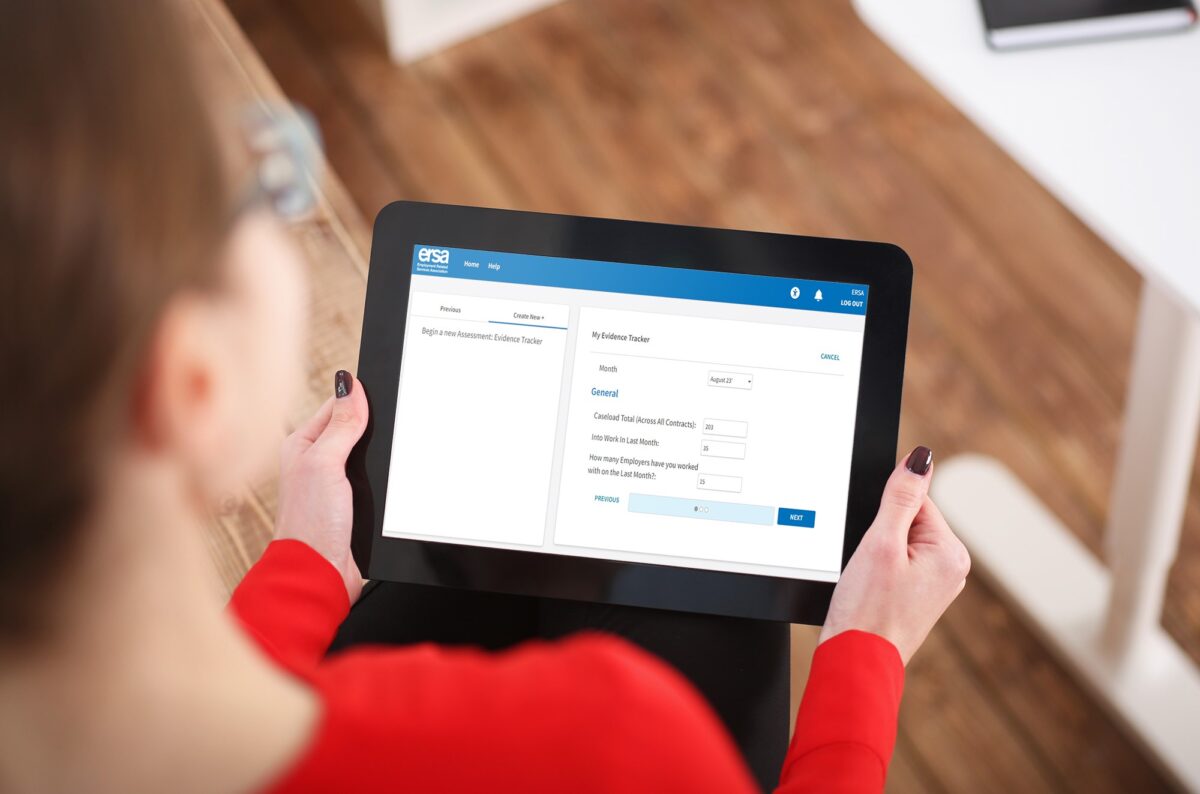Quantifying the success of the employability sector: ERSA tracker launched

A new data tracker is being launched across the employability sector to capture quantitative evidence of its impact. Coordinated by the Employment Related Services Association (ERSA) and developed by industry advocate ICONI Software, the tracker will gather headline data on caseloads, demographics, and outcomes on an ongoing basis to build a positive picture of the sector’s vital role in supporting often disadvantaged jobseekers and learners.
“We know that our sector successfully delivers inclusive support that contributes to a fairer labour market and have many examples of it doing so,” explains ERSA’s Chief Executive, Elizabeth Taylor. “By bringing long-term indicative data together from across the sector, rather than being organisation or programme specific, the tracker will add invaluable weight to those examples and to our conversations with policy makers at all levels. Together, we can make a compelling case for what our sector achieves. We hope everyone working in employment related services will embrace its potential and contribute to its success.”
The web-based tracker is based on ICONI’s established delivery and case management software – used extensively across the sector. A secure portal will lead registered users to three simple input forms to enter non-programme specific totals of people supported and employed, their barriers to employment (if known) and types of support services provided. It can be accessed from PC, laptop, tablet, or phone and will provide prompts and reminders to users. ERSA team members will have management access to control the platform and compile summary reports.
“Our aim has been for simplicity and ease of use; the input fields should only take a matter of minutes to complete each month,” says Liam Jordan, Managing Director of ICONI Software, which has developed the tracker for ERSA and its members on a pro bono basis. “We use technology for good, supporting organisations to effectively help other people. The tracker will provide valuable insights and tangible facts on the large-scale outcomes the employability sector achieves.”
Tracking data is often tightly controlled within programmes, by delivery organisations and their commissioners. While this data will continue to provide contracted, programme-specific metrics, the ERSA tracker will independently log more generic totals. Effectively anonymising results and combining them nationally for the first time, it will calculate headline figures for people helped, from different cohorts, on an ongoing basis for the sector’s dispersal.
Chair of ERSA’s Board, Paul de Pellette from Triage, believes it will allow large and small providers alike to speak with a united voice to national and devolved policy makers, partners, and other stakeholders.
He says: “Many of the people our sector supports are not those easy to help, yet we consistently transform lives and should take pride in doing so. Behind every statistic, there’s one of these individuals, but we need robust data from across the sector to demonstrate the scale and economic impact of what we do.
“ERSA will compile and regularly share high level findings from the tracker so all contributors can feel part of something bigger and make their own valid, ongoing business case. Our sector regularly collaborates to achieve great things and thanks to ICONI we now have a platform to put a figure on it.”
The tracker will initially be launched across ERSA’s membership organisations; more than 300 private, public and voluntary sector organisations helping the UK’s disadvantaged jobseekers and low earners. Non-member organisations are also encouraged to contribute in order to compile as accurate a picture as possible. Contact [email protected] for further information and registration instructions.











Responses